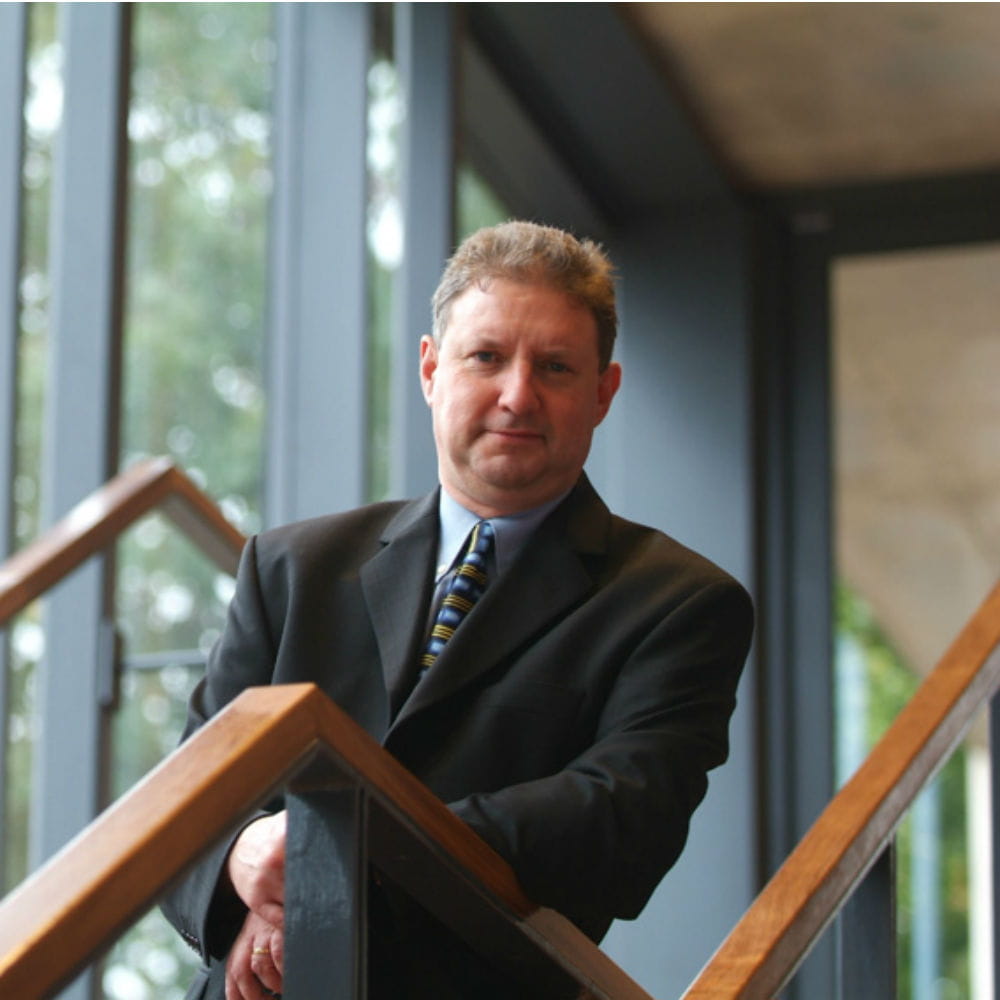Half a century of Essex seen through the eyes of newly retired Nigel South

Professor Nigel South has retired after almost 50 years association with the University. We asked him about his career at Essex.
What first sparked your interest in sociology and criminology?
When I did A levels (back in the early 1970s!) Sociology wasn’t on the curriculum, but I won the school Economics Prize – despite getting a poor A level result – because the great teacher we had recognised that I was good at what he called ‘Social Economics’. That led to looking for a university that sounded good at this subject – which was basically Sociology.
When did you first come to Essex and why?
I arrived as an undergraduate in 1973. Essex had – and of course still has – a great reputation for Sociology so that was important but also - to be honest - it was in the south and near London which was attractive as I wanted to try living away from Leeds. I never really moved back north, worked mainly in London through the 1980s and came back as a Lecturer in 1990.
What is your particular area of expertise and why did you choose this?
Again, I owe a lot to great teachers. I did my BA and MA here and was taught by Ken Plummer and Stan Cohen - both pioneers in the Sociology of Deviance and Crime – and that led me into my specialist field. I left to take up a funded PhD studentship at Middlesex in London which at the time was a centre for innovative work in criminology. I was supervised by an organisational anthropologist – Gerry Mars – and by a critical criminologist - Jock Young. It was an inspiring combination and shaped my regard for applied sociology – or what in REF terms we now call ‘Impact’.
What has changed or stayed the same during your time here?
In some ways the University has changed a lot since I was an undergraduate when there were only a few thousand students and the six towers for accommodation – I think we didn’t really grasp how new it was. The things that haven’t changed are the sense of a community that is diverse, international, and inclusive. In my first year I lived in Keynes with students from Iran, Portugal, Canada, and Ireland, as well as various parts of the UK – coming from 1970s suburban Leeds this was eye-opening. Keynes still hosts the pioneering Nightline service and a lot of inclusion initiatives originated with the Student Union. The architecture is much the same and the squares have always functioned nicely as social spaces – but of course the campus has grown enormously. I think the Silberrad has provided a perfect boundary between the built campus and the landscaped park. In the Department of Sociology, one of the best things that hadn’t changed when I came back was that so many of the staff who had taught me were now my colleagues. Wonderful and terrifying at the same time.
What are you most proud of achieving at Essex?
Essex provided a lot of opportunities and support over the years so it’s a bit of a mix. In the 1990s I was Head of the Health and Social Services Institute which became the Department of Health and Human Sciences, and with a great team we built up our professional health fields and these now underpin two Schools and a new Institute in the University. In Sociology, I was joined by outstanding colleagues in the area of ‘sociological criminology’ and we now have an international reputation for our research – and for our textbook now in its 4th edition! But it might be the regional inclusion work as a Pro Vice Chancellor that I could be most proud of – contributing to seeing the establishment of our campus at Southend and the University of Suffolk.
How has your area of interest changed over the years?
It’s more international and global. My early work was very urban focused – on policing, and on drugs, in UK contexts. But later work on environmental crimes and harms required a global perspective – how else can you think about climate change for example? – and this, in turn, led to an interest in those most affected by the causes of environmental crises but who contribute least to these. So, my most recent work is with a team in Colombia learning about how Indigenous communities have responded to encroachment on their lands and to the Covid 19 pandemic.
You have worked with many students over the years – what have you enjoyed most about this?
When they surprise themselves by succeeding – this is whether they have been ‘widening participation’ undergraduates who ‘weren’t sure if university was for them’ through to highly motivated PhD students who began to convince themselves they ‘had nothing new to say’.
What are your plans for retirement?
Well, I’ll continue to do research and to publish, and I’ll be an Emeritus so don’t intend to lose contact with the Department. Covid has meant international travel plans are a bit more tentative than I might have hoped but Christmas presents included guides to walks on the Essex coast and ‘forgotten’ London so I will probably take the hint and try these.
What will you miss most about working at Essex?
The internationalism of the place and diversity of students and staff.
What won’t you miss at Essex?
I’ve turned into a grumpy old man muttering about ‘too many new systems’ so I won’t miss those.
